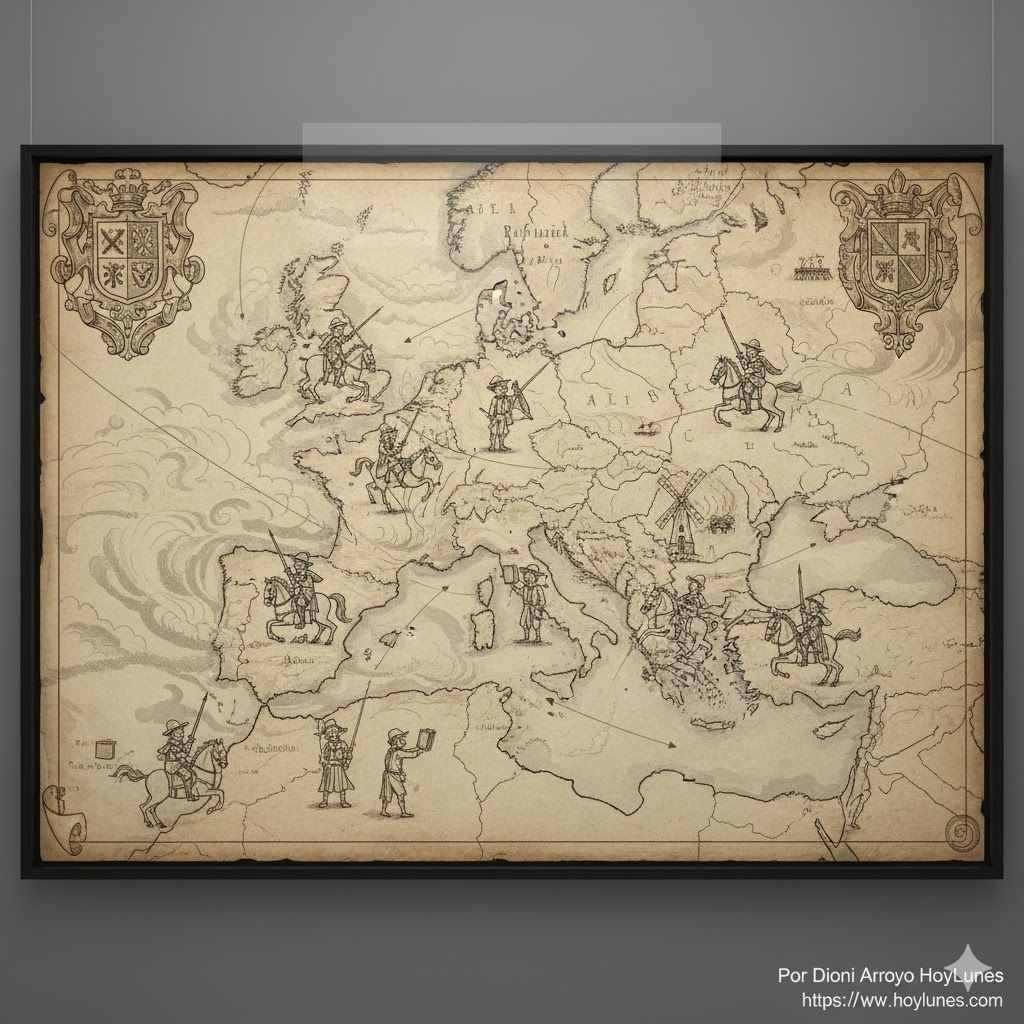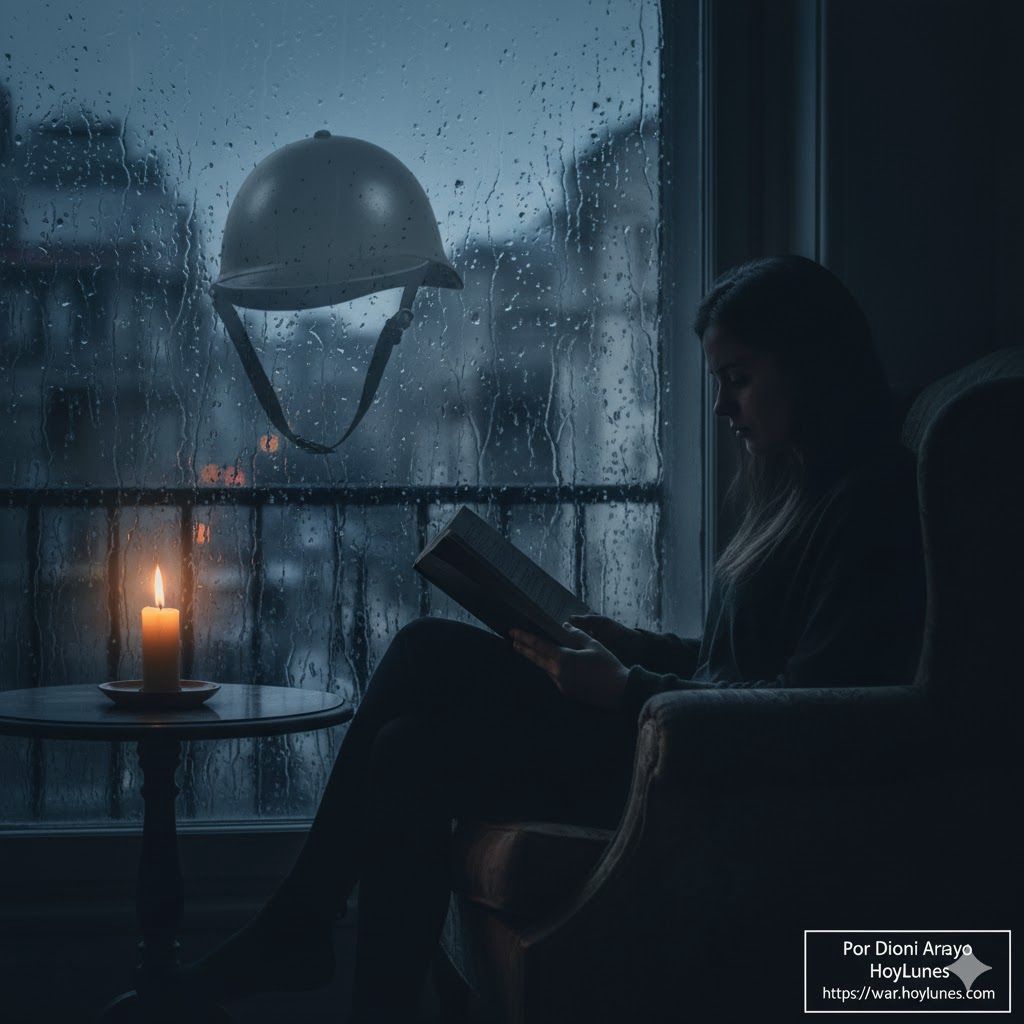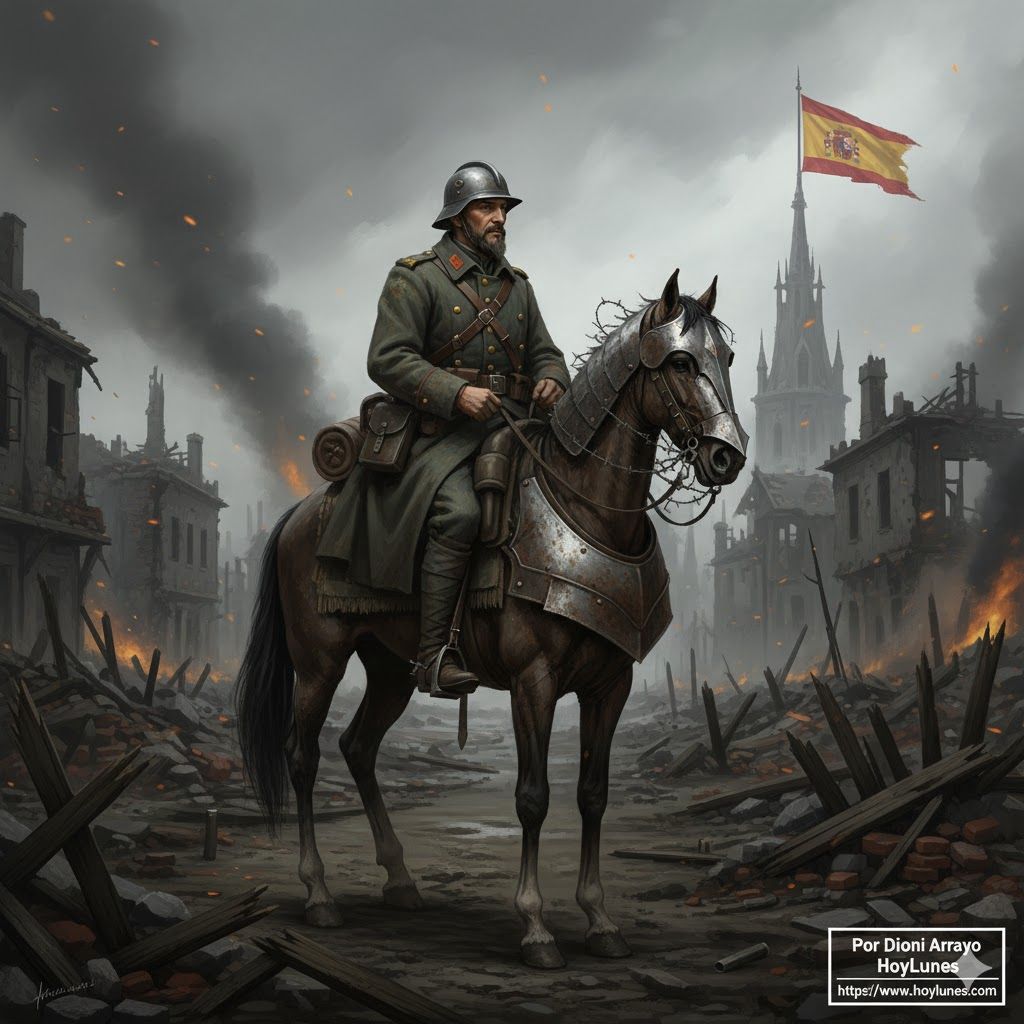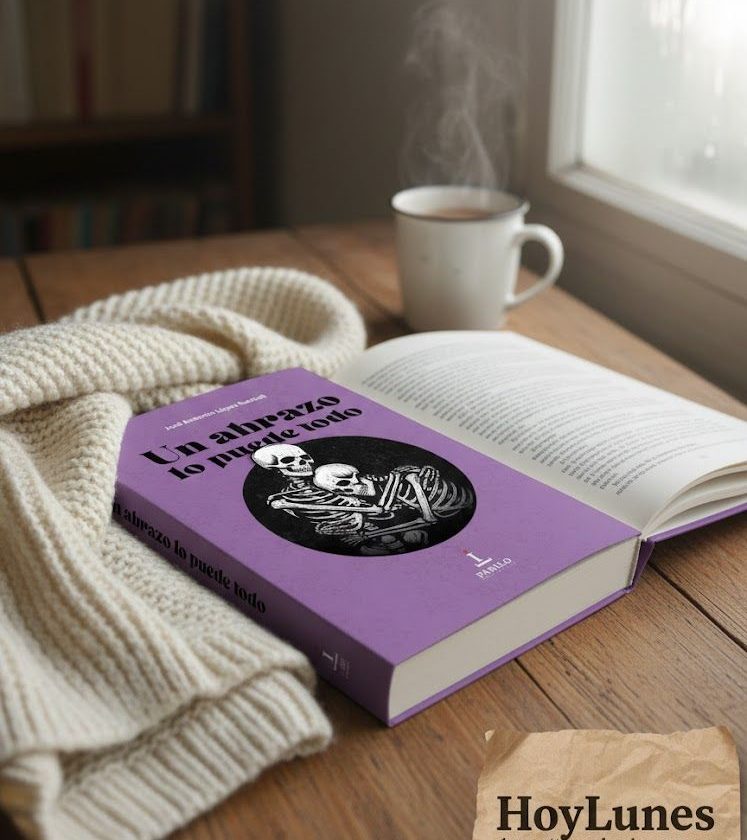In 1915, while Europe burned in the Great War, the Valencian writer Elías Cerdá imagined a Spain rising against chaos. His novel, *Don Quixote at War*, blends fantasy, history, and social conscience in a narrative that today echoes as a mirror of time: the dream of a country that preferred reason over violence.
Fantasy That Could Have Been History
By Dioni Arroyo
HoyLunes – In a time when stories seem to repeat themselves, Elías Cerdá opens a fissure between reality and imagination. “Don Quixote at War. Fantasy That Could Have Been History” is not just a title: it is a warning, an invitation, and a game. In its pages, fantasy disguises itself as memory, and what could have been history beats beneath every word with the pulse of possibility.
In this new installment of “Paper Jewels“, we recover a work where the boundaries between dream and truth blur, reminding us that every story, even the most fantastic one, is a way of seeking meaning in the world.
The book was written in 1915, during the first year of the so-called Great War — a conflict that pitted the major European colonial powers against each other until it became an international confrontation. Elías Cerdá, a Valencian born in 1874, devoted much of his life to journalism, and perhaps because of this, the tone of the novel feels like a chronicle of events, with careful and highly stylized writing, highlighting its pedagogical intent — he had studied the then-existing degree of Teaching — to develop a series of arguments that invite readers to understand that wars are never the solution.

“Don Quixote at War” is a “rara avis”, and we might define it as the strange graphic document that broke with the literary context of the early twentieth century. It is a jewel that transports us to a story that, fortunately, never existed. We are speaking of nothing less than a “uchronia”, that is, an alternative historical novel — just as other Spanish authors have speculated about a republican victory in the Civil War or Spain’s participation in World War II. But “Don Quixote at War” came much earlier; it is a distinguished and elegant precedent.
We are faced with a treasure not to be missed, one that invites reflection, the recovery of lost memory, and an engaging and curious journey through events that reveal a chapter of our past we barely remember.
It must be made clear that Spain remained on the sidelines of World War I… but what would have happened if we had intervened? Would we have had characters more like “El Cid Campeador” or “Don Quixote”? In what situation would we have found ourselves at the end of the conflict? Would we have tipped the balance?

Too many questions that I will not answer — the narrative magic must be preserved. A curious fact that could have been real: on September 20, 1914, German troops bombarded the Catholic cathedral of Reims, where French soldiers had taken refuge. The Spanish press of the time, favoring our intervention, seized on that event to insist that the Kaiser was an apocalyptic dragon bent on destroying every temple. Immediately, Lerroux telegraphed Romanones, indignant over the event, claiming that it was reason enough to “declare war on twenty empires.
So, what are we waiting for?”
This imagined and singular event is where we find the “Jonbar Point”, used by Spain as a pretext to decide to enter the international conflict and challenge the powerful German troops. From that moment on, we face a fascinating and dazzling alternative history — a journey in which we allow ourselves to be guided by the linguistic and stylistic skill of this magician of words, who seduces us into the great fantasy of imagining what might have become of us.
Among the alarming descriptions are the destruction of Vigo under the assault of German battleships, followed by a series of violent battles, sieges, and skirmishes amid the mist of nerve gas indiscriminately released over the civilian population.
In short, it is a nimble and accessible book, with short chapters and an undeniably elegant journalistic style that grants it both drama and credibility. It is an ode, an indignant song of protest against war and everything it represents — a warning so that no one might dare drag our country into that madness in which foreign interests were at stake, such as the traditional dispute between Alsace and Lorraine, as well as numerous regions in Eastern Europe. A forceful and chilling response to those who, at that time, longed for and insisted on our participation.

We must thank “Editorial Libros Mablaz”, one of the few in our country that has bravely undertaken the recovery and reedition of early science fiction works — true classics we have every right to enjoy — those belonging to what we call “Proto–Science Fiction”, a genre we must cherish and promote.
It has been a great success by “Ricardo Muñoz Fajardo”, whose edition includes numerous annotations that expand the documentation we may wish to consult, as well as abundant real photographs from the era — a true ethnographic treasure that invites us to immerse ourselves in that time and speculate alongside the writer “Elías Cerdá”.
I warmly invite you to read this small book, which, moreover, is quite brief, because it will be an exciting discovery — just as it has been for me. A unique piece, a precursor to a literary genre that grows more captivating every day.

#hoylunes, #joyas_de_papel, #dioni_arroyo, #don_quijote_en_la_guerra, #elías_cerdá,



